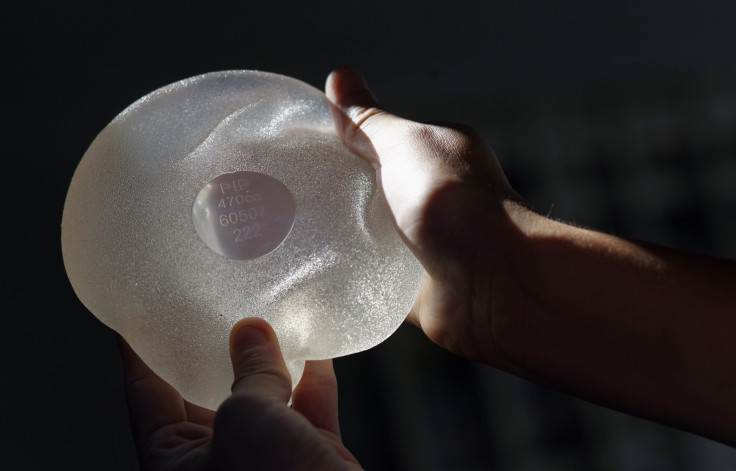Are Breast Implants Safe? Physicians Debate Saline And Silicone In Survey

While there can be any number of issues that develop from going under the knife, many in the medical field seem to be divided on the overall safety of breast implants. A leading social networking website for physicians, SERMO, recently conducted a survey with its user base to gauge the medical field’s thoughts on the cosmetic procedure.
Over 2,000 physicians were asked how safe they thought breast implants were, considering patients maintained “upkeep and maintenance” over time. The professionals were asked about which kinds of implants they considered the safest (saline or silicone gel), whether both options were safe or if the safest bet was to forgo the implants entirely. The medical professionals featured in the survey not only included plastic and reconstruction surgeons, but anesthesiologists, cardiologists and dermatologists, among other practitioners.
The poll found that of those surveyed, 49 percent of the medical professionals did not consider any sort of breast implant to be safe, while 32 percent thought that both saline implants and silicone gel implants were safe. 14 percent considered saline implants to be the safest option, while a mere five percent considered silicone gel implants to be the safest option for implants.
Read: Mama June Shannon Update: Size 4 Star Paid For Her Own Plastic Surgery And Weight Loss
Both saline and silicone breast implants can carry the same types of risks post-operation, according to the Mayo Clinic. Pain, infection, scar tissue that affects the shape of the implants, “leakage or ruptures” or adjustments in nipple or breast sensation are all potential side effects that can occur with breast implants. While both methods are deemed safe, researchers continue to assess the long-term safety and effects of the implants.
There’s also the lifestyle issues implants could potentially pose. Serious health dangers aside, follow-up surgeries could be required and implants could complicate future mammograms or impact breastfeeding ability, the Mayo Clinic reports.
The most important factor, doctors have said, is to limit long-term risks by keeping up-to-date with regular checkups.
Despite the risks, women remain undeterred.
“It doesn’t discourage a single one of them, which is pretty amazing,” Dr. Michael Zenn, a vice chief of plastic surgery at Duke University Medical Center told CBS News. “This requires almost lifetime maintenance when you have a breast implant in.”
© Copyright IBTimes 2025. All rights reserved.






















